 |
| People come to do administrative procedures at the one-stop transaction department of Muong Va commune, Sop Cop district ( Son La ). Illustrative photo: Huu Quyet/VNA |
According to the plan to implement the arrangement of district and commune-level administrative units in the 2023-2025 period issued by the Government in Resolution No. 117/NQ-CP, in 2024, localities will have to complete the arrangement of district and commune-level administrative units with natural areas and population sizes below 70% of the prescribed standards; district-level administrative units with natural areas below 20% and population sizes below 200% of the prescribed standards; commune-level administrative units with natural areas below 20% and population sizes below 300% of the prescribed standards; arrange and perfect the organizational apparatus, arrange staff, civil servants, public employees, and workers at agencies, organizations, and units in district and commune-level administrative units to implement the arrangement in the 2023-2025 period.
The Ministry of Home Affairs said that the arrangement of administrative units at district and commune levels in the 2023-2025 period must be completed before October 2024 so that localities can prepare to organize Party Congresses at all levels for the 2025-2030 term, towards the 14th National Party Congress, in which the grassroots level will implement in the first quarter of 2025.
Thus, the actual time to carry out all the procedures for arranging administrative units is only about 6 months. Meanwhile, the arrangement of administrative units is an important and complicated content, with a large level of impact and influence, the implementation process is carried out strictly, through many stages, so localities face many difficulties in ensuring the required time schedule.
What is worrying is that the number of administrative units at district and commune levels that are being reorganized is large and takes place simultaneously with the implementation of the Party's direction and legal regulations on streamlining the payroll. Many localities are worried that this will create great pressure on the arrangement of the apparatus, the settlement of regimes and policies for redundant cadres, civil servants, and public employees, and the handling of headquarters and surplus public assets due to the arrangement.
Hung Yen province said that the number of Party Committee members, Standing Committee members, Deputy Party Committee Secretaries; the number of Party Committee members and Deputy Heads of Party Committee Inspection Committees for Party Committees in new administrative units after the reorganization is very large. Regulations on receiving communal-level cadres and civil servants to work as district-level and provincial-level civil servants are facing difficulties.
The arrangement of redundant non-professional cadres at the commune level is difficult because Resolution No. 35/2023/UBTVQH15 of the National Assembly Standing Committee (on the arrangement of administrative units at the district and commune levels for the period 2023 - 2030) does not stipulate a 5-year settlement period for this subject. Decree No. 29/2023/ND-CP of the Government only stipulates support for this subject during the period from retirement to the end of the term, so the level of support is not large.
Therefore, Hung Yen proposed that the Central Committee consider and have a specific mechanism on the number of Party Committee members, Standing Committee members, Deputy Party Committee Secretaries; the number of Party Committee members and Deputy Heads of the Party Committee Inspection Committee of the newly formed Party Committee after the merger at the Congress for the 2025-2030 term. Consider the mechanism and support policies for non-professional workers at the commune level who are redundant due to reorganization (the reorganization period is extended for 5 years like commune-level cadres and civil servants).
Bac Kan province stated that in reality, it is very difficult to arrange and assign surplus commune-level cadres and civil servants to work as district- and provincial-level civil servants because these agencies and units have basically used up all their assigned staff, and on the other hand, they are implementing the policy of streamlining staff according to regulations. In addition, it is very difficult to handle and auction real estate assets to ensure compliance with regulations and suit the actual conditions of the locality. After the 2019-2023 arrangement, up to now, Bac Kan is still continuing to handle assets and land after the arrangement.
Sharing the same reality, Binh Dinh province said that the number of cadres, civil servants, and non-professional workers at the commune level is large and difficult to arrange and assign positions. The solution to the problem of surplus public headquarters is difficult because it is difficult to convert the function of use or if converted, the land use planning must be adjusted; if converted to residential land or business land, it is difficult to attract investors.
Concerned about the difficulties in arranging, organizing, and resolving policies and regimes for redundant cadres and civil servants due to the rearrangement of administrative units when implemented at the same time as the policy of streamlining payroll, Dak Lak province also raised difficulties in handling redundant headquarters and public assets; arranging investment capital, completing infrastructure, and connecting traffic, especially in mountainous and remote communes.
Ninh Binh Province shared that after the implementation of the arrangement of administrative units at district and commune levels, a large number of cadres, civil servants, public employees, and workers were redundant, especially the cadres and civil servants at commune level. Meanwhile, the arrangement of redundant cadres and civil servants at commune level to work as civil servants at district and provincial levels is very difficult to implement, because these agencies and units have basically used up all the assigned staff, and on the other hand, they are having to implement the policy of streamlining the staff according to regulations.
After the arrangement and merger of administrative units, especially at the commune level, there will be many surplus real estate facilities such as: People's Committee headquarters, cultural houses, medical stations, multi-purpose buildings of schools, etc. The handling and auction of real estate assets is very difficult to implement to ensure compliance with regulations and suitability with local conditions.
Ninh Binh proposed to consider and promulgate a mechanism for auctioning real estate and land assets suitable to local conditions; provide specific guidance on the roadmap and procedures for implementing the arrangement of urban administrative units or allow localities to carry out the arrangement (expansion of administrative units) first, then carry out the establishment of new or adjusted urban development plans and programs to ensure compliance with the urban development situation in the next period.
Hai Duong province said that after the reorganization, the facilities and public assets in the new administrative unit are both redundant and lacking. The location chosen for the new administrative unit's headquarters is cramped, so it will be difficult to organize common activities. At the same time, handling work and administrative procedures in the new commune-level administrative unit has a large population.
The work of arranging redundant communal-level cadres and civil servants is difficult, because the merger will first require the consolidation of cadres and civil servants. Therefore, most positions are held by 3-4 people, while the cadres and civil servants are young and have basic professional qualifications meeting the prescribed standards.
Hai Duong representative said that some newly formed commune-level administrative units after the rearrangement did not meet the prescribed area standards but could not be rearranged with a third commune due to many factors such as planning, cultural history, affecting the rearrangement period after 2026-2030; the people did not agree.
The problem raised by Ha Tinh province in arranging rural administrative units into urban administrative units is that it is necessary to adjust the planning and urban development program, which takes a lot of time and affects the progress of completing the arrangement project.
According to this locality, the organization of liquidation and auction of some headquarters and surplus public assets after the rearrangement is expected to be difficult because they are located in areas with difficult socio-economic conditions, their value has decreased because they are no longer in the central area, not convenient for tourism, trade and service business; and it is difficult to find bidders.
On the other hand, the procedures for liquidating and auctioning headquarters and public assets according to regulations must go through many steps, involving many agencies and units, so the implementation time is often prolonged, causing costly costs for asset preservation. The procedure for changing land use purposes when auctioning will also be difficult because it takes time to adjust local land use planning and plans.
The difficulty of Thai Binh lies in the problem of having many schools, the schools are far apart, which will affect the general management and operation; the facilities, the common meeting rooms of some units are still small, not enough to ensure the general operation of the whole school. In addition, there are difficulties in arranging and organizing infrastructure (government offices, schools, medical stations, etc.); arranging cultural institutions (communal houses, pagodas, martyrs' cemeteries, organizing festivals).
Thai Binh requested the Central Organizing Committee and the Ministry of Home Affairs to provide specific guidance on the arrangement of numbers and solutions for arranging, organizing, and implementing policies for surplus commune-level officials holding the positions of Vice Chairman of the People's Committee, Vice Chairman of the People's Council, and Head of socio-political organizations.
The Ministry of Home Affairs shall coordinate with relevant ministries and branches to issue specific guidance documents on the arrangement of public service units (cases, medical stations, etc.), agricultural service cooperatives in the areas of commune-level administrative units to carry out the arrangement.
The Ministry of Finance provides specific guidance on the implementation of procedures for liquidation and auction of assets, headquarters, and land use rights at public headquarters that are surplus or unused, ensuring simplicity of administrative procedures and shortening implementation time.
Source












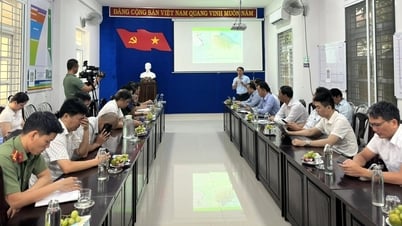
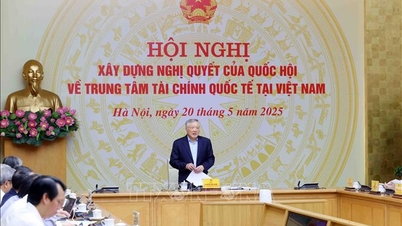
























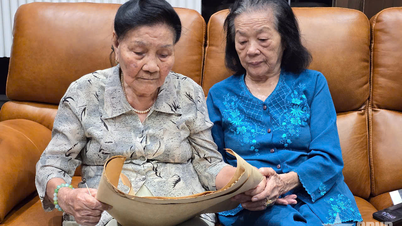



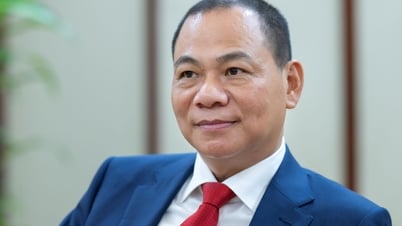






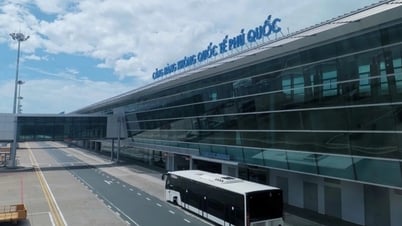
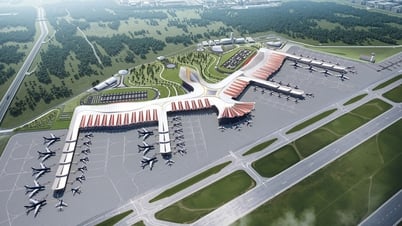



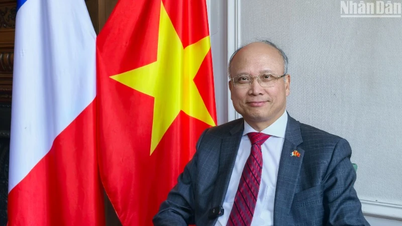



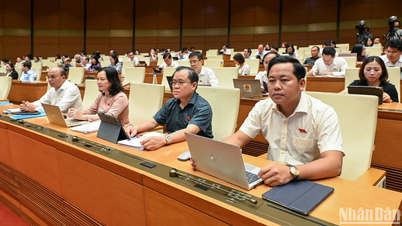




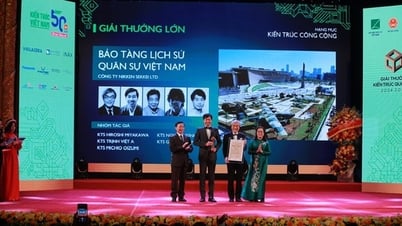

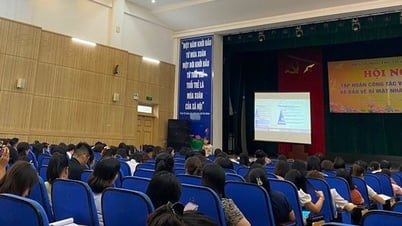
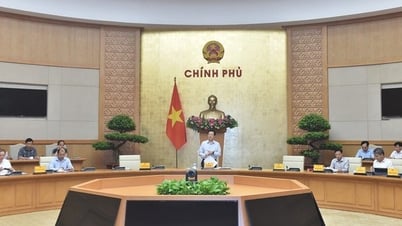
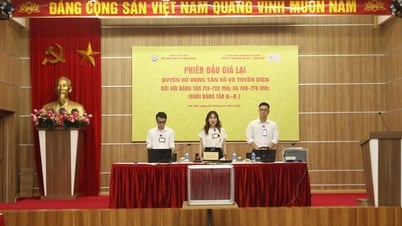




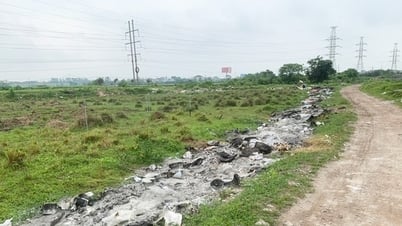

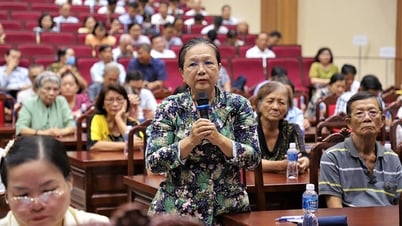
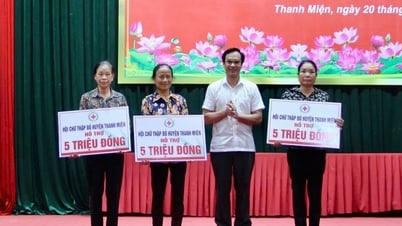










Comment (0)